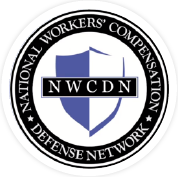Washington Adopts New Rules Implementing Public Health Reporting and Notification Requirements
In August 2021, Washington adopted the Health Emergency Labor Standards Act (HELSA). The Act provides a rebuttable presumption of workers’ compensation coverage for certain workers and imposes new notification and reporting requirements on employers in the event of a public health emergency.
In response to the passage of the HELSA, as well as Substitute Senate Bill 5254 (SSB 5254) regarding voluntary use of personal protective equipment (PPE) during an emergency, Washington’s Department of Labor & Industries (L&I) engaged in emergency rulemaking. Among other things, this rulemaking creates notice and rapid reporting requirements for some workplace exposures and increases protections for “high risk” workers.
The emergency rules are found at WAC 296-62-600 (HELSA) and WAC 296-62-601 (PPE). In general, the rules:
- Provide definitions for terms in HELSA and PPE laws;
- Require those employers with more than 50 covered employees at a workplace or worksite to report to L& I any infectious or contagious disease outbreaks of at least 10 employees;
- Confirm that employees are not required to disclose any medical condition or diagnosis to their employer;
- Require employers, except for certain healthcare employers, to notify employees in writing of potential exposures within one business day; and
- Permit employees and contractors to voluntarily use personal protective equipment not otherwise required by the employer.
Because the emergency rules include requirements for when there is a public health emergency for an infectious or contagious disease, the requirements are applicable to the ongoing COVID-19 pandemic.
If you are an Employer and have questions and need assistance, please contact the lawyers at Cummins, Goodman, Denley & Vickers at (503) 476-8200.
©2021 Cummins, Goodman, Denley & Vickers, P.C. This material is provided for informational purposes only. It is not intended to constitute legal advice, nor does it create a client-lawyer relationship between Cummins, Goodman et. al., and any recipient. Recipients should consult with counsel before taking any actions based on the information contained within this material.

